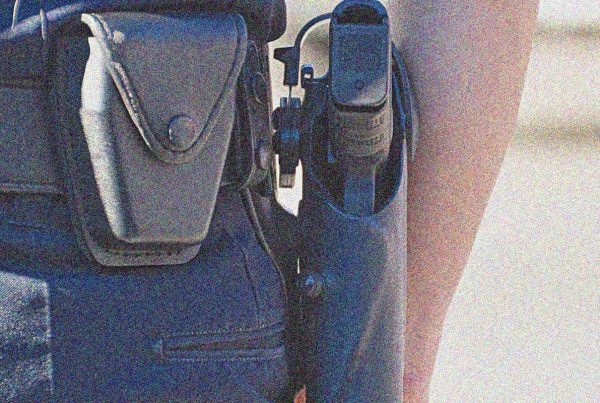UPDATE: Ontario’s policing reform legislation was passed on March 9, 2018. Bill 175, as amended by the committee, and as passed on Third Reading can be found here.
Yesterday, Ontario’s provincial government concluded its Committee hearings on the Safer Ontario Act, legislation that would bring significant changes to Ontario’s system of police oversight and accountability. The CCLA appeared before the Committee to recommend several necessary amendments to the proposed legislation.
The Canadian Civilian Liberties Association has long advocated for policing reform in Ontario. For decades, policing in the province has been by plagued by accountability, oversight, and transparency deficits. A legislative overhaul of Ontario’s antiquated Police Services Act is necessary to begin to remedy these deficits.
The Safer Ontario Act primarily attempts to bolster accountability, oversight, and transparency in Ontario by implementing the majority of Justice Tulloch’s recommendations in his Report of the Independent Police Oversight Review. However, Justice Tulloch’s recommendations arose out of public consultations that revealed alarming levels of distrust of Ontario’s police services and their oversight and accountability bodies, including a widespread concern regarding systemic discrimination in Ontario policing. While many of the Safer Ontario Act’s proposed reforms could help tackle this pervasive problem of distrust, substantial efforts will be needed to ensure that any new oversight and accountability bodies are truly independent of the police services which they oversee. Substantial efforts will also be needed to ensure that any new oversight and accountability bodies are adequately funded, and are willing to use the powers they may be given.
Chief among our recommendations is that the government’s proposed legislation should be amended to provide more robust powers to civilian authorities who are charged with overseeing police services. Public officials and oversight boards must play an active, informed role on issues that have a significant impact on residents’ Charter and Code-protected rights, such as the practice of carding or the general issue of racial or social profiling. As we argue in our submissions, civilian authorities are often unnecessarily hindered in their oversight and accountability obligations by police services who maintain that attempts to address these issues would amount to interference with their operational independence. Accordingly, we recommend several amendments to strengthen and clarify the power and responsibility of civilian authorities to make and implement policing policies and directives, as well as several amendments that would require policies and directives to be publicly available information.
About the Canadian Civil Liberties Association
The CCLA is an independent, non-profit organization with supporters from across the country. Founded in 1964, the CCLA is a national human rights organization committed to defending the rights, dignity, safety, and freedoms of all people in Canada.
For the Media
For further comments, please contact us at media@ccla.org.





